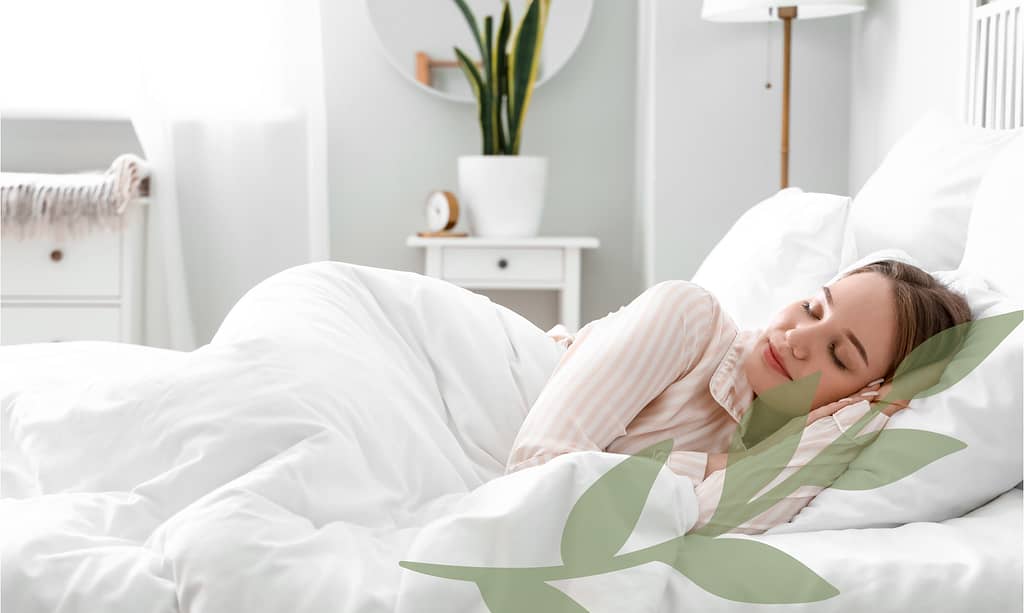Sleep Soundly Anywhere: 10 Tips for a Restful Night in Your Home Away from Home

Sleeping well in unfamiliar places is a universal challenge. Research shows that our brains stay vigilant when we slumber in new environments, whether it’s a hotel room, sleep center, a friend’s home, and even sometimes our home away from home.
Quality sleep is vital for overall health, impacting our physical and mental well-being, productivity, and our quality of life. This article shares ten practical tips to help you get the rest you need while away from home.
10 Tips for a Better, More Restful Sleep
Unfamiliar surroundings can make quality sleep a challenge. To help you rest better in your home away from home, here are ten practical tips that can make a world of difference.
1. Choosing the Right Accommodations
Whether you’re on vacation or spending time in your winter home in Florida, selecting the right place to stay is crucial. Consider factors like location, room type, and guest reviews. Prioritize quiet surroundings away from noisy streets or heavy traffic to ensure a peaceful night’s rest. Your choice of accommodations can set the stage for more restful sleep.
2. Packing Comfort Essentials
When you’re away from home, having familiar items can make a world of difference. Don’t forget to pack sleep-friendly essentials—a comfortable travel pillow, earplugs to block out noise, and an eye mask to create darkness.
At the very least, these simple comforts can help you sleep better as you acclimate to your new surroundings.
3. Creating a Sleep-Friendly Environment
Tailor your sleeping environment to your preferences. Adjust room temperature, ensuring it’s comfortable for you. Dim the lights, and consider using sound machines or smartphone apps for soothing white noise to mask any unfamiliar sounds. A sleep-friendly setting can work wonders for a peaceful night’s rest.
4. Maintaining a Consistent Sleep Schedule
Older adults often experience an earlier shift in their sleep schedule, with increased sleepiness in the evening and early morning awakenings. This shift may be linked to age-related changes in their circadian rhythm. When traveling, it’s essential to stick to your regular sleep schedule to help adjust to local time zones.
Consistency aids in syncing your sleep patterns with the destination, ensuring a smoother transition and better sleep.
5. Limiting Screen Time Before Bed
Mobile device usage is on the rise among seniors, with internet usage in the 65+ age group increasing from 43% in 2010 to 75% in 2020, and over 61% owning a mobile phone in 2020, up from just 18% in 2010. And we’re not just singling out seniors—screen time is a factor that we need to consider at any age.
Studies indicate that two or more hours of screen time in the evening can disrupt melatonin production, hindering sleep. Turn off electronic devices at least one hour before bedtime; opt for a book, a bath, or other relaxing activities to promote better sleep.
6. Staying Active During the Day
Staying active while on the go can enhance your sleep quality. Physical activity elevates your core body temperature, signaling wakefulness, and about 30 to 90 minutes later, it starts to fall, promoting sleepiness. When you’re away from home, explore local attractions or take leisurely walks to keep your body clock aligned for a more restful night.
7. Eating a Healthy Diet
Maintaining a healthy diet supports better sleep patterns. Opt for a high-fiber diet rich in fresh fruits, vegetables, whole grains, and lean proteins while avoiding added sugars. Foods with B vitamins, known to help regulate melatonin, can be particularly beneficial.
Healthy eating contributes to more restful nights, even when you’re away from home.
8. Minimizing Caffeine and Alcohol Consumption
Alcohol, a central nervous system depressant, may induce feelings of relaxation and sleepiness. However, excessive alcohol consumption is linked to poor sleep quality and insomnia symptoms, particularly in those with alcohol use disorders. It can worsen sleep apnea.
Caffeine, a stimulant, can hinder falling asleep and delay your body clock. It reduces total sleep time and the amount of deep sleep, impacting sleep quality. Cutting back on both can significantly improve your sleep.
9. Practicing Relaxation Techniques
Incorporate relaxation techniques like deep breathing, meditation, or gentle stretches before bedtime. These methods calm the mind and body for better sleep. You can also try relaxation apps like “Calm,” “Headspace,” or “Relax Melodies” to guide you in achieving a restful state before slumber.
10. Having an Evaluation for Sleep Apnea
Sleep apnea is a concerning sleep disorder where breathing frequently halts and restarts, causing disrupted sleep. If you snore loudly and feel persistently tired despite a full night’s rest, it may be a sign of sleep apnea.
If you experience sleep apnea symptoms like loud snoring, gasping for air during sleep, daytime fatigue, morning headaches, or difficulty concentrating, consider a sleep apnea evaluation to identify potential issues and improve sleep quality. If your doctor determines you have sleep apnea, visit a dentist experienced in sleep dentistry to help with your treatment.
Prioritize restful sleep for a healthier you.
Getting quality sleep is essential, especially when you’re away from home. By following these tips, you can significantly improve your sleep quality while traveling. Don’t overlook the signs of sleep apnea; if you snore loudly and experience daytime fatigue, consider a sleep apnea evaluation.
Your well-being depends on good sleep. Contact Laurel Manor Dental to ensure your oral health and overall health remain in excellent condition.
